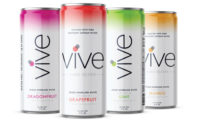Contract packing needs increase within beverage market
Evolution of beverage industry sees more turning to contract manufacturing

As industry analysts release their lists of what to expect in the upcoming calendar year, the macro trend that has led up to these emerging trends seems to stem from consumers’ desires for choice. Whether it be flavor, function or packaging size, consumers increasingly have more options from which to choose. This desire for more beverage choices, however, can place a strain on the manufacturing and packaging of these products.
In New York-based Beverage Marketing Corporation’s (BMC) November report titled “Private Label Beverages & Contract Packing in the U.S.,” the market research firm details how contract packing’s prominence continues to grow and what factors have led to the change.
“The shifting landscape of the U.S. beverage industry has made contract packing more important today than ever,” the report states. “In particular, the birth and rapid growth of new age beverages as well as craft beers over the last two decades has moved contract packing from an activity of only occasional economic interest for most beverage plant owners to one that provides the essential foundation of a number of beverage segments.”
Bill Foley, president of business development and marketing for Southeast Bottling & Beverage, Dade City, Fla., highlights the growth of new age beverages as well. “Tea and sports nutrition brand owners [are] expanding their lineups by going into liquid formats,” he says.
He adds that the trend toward these liquid formats “requires ‘higher’ levels of certifications, dietary supplements and [Global Food Safety Initiative] (GFSI).”
Eric Miller, chief executive officer of Brooklyn Bottling, Milton, N.Y., expands beyond the new age beverage concept to hone in on the product attributes driving today’s new product development.
“Macro trends can be defined as different, healthier [and] less calories,” he says. “Everyone’s trying to find their own angle to accomplish all of the above or different segments.”
Miller adds that these macro trends aren’t isolated to new, emerging beverage manufacturers as larger operations also are embracing these trends and turning to contract manufacturers to fulfill their needs.
“Even the bigger players are looking into innovations and not waiting as long as they used to [to] see if other companies are picking up sales,” he says. “They’re actually responding [by] either creating their own new products that may be too small a volume or too complicated to produce on their high-speed line or acquiring pieces of companies … in their infancy. A lot of times, if you’re the bottler, you end up bottling for them. I would say there are more opportunities for either new companies trying things that are bit more complex or the larger companies saying for [their] high-speed line [that] it doesn’t really fit [the] profile.”
Miller explains that for small companies, contract manufacturing allows them to realize their production goals without having to stretch themselves when resources might be limited.
“If you’re a small company, you can’t afford the cap ex to acquire and build a plant,” he says. “It’s becoming very, very expensive to do so and really keep up with all the regulations and FDA and all the other standards out there. [For] a small company, you don’t have the critical mass to build the infrastructure so you can rely on the existing infrastructure, and one that can rely on peaks and valleys or predictable growth.”
As Miller noted earlier, large companies also are able to reap the benefits that contract manufacturing has to offer.
“For a large company, you’re running very, very high-speed, very dedicated lines,” he explains. “Your changeover for a product that is not in your norm as you’re building it until it does hit a critical mass that is sufficient to fit within a larger, higher-speed system, you need some type of platform to work and run it. That’s another area where a contract packer can fit in.”
Listening to the market
In order to fulfill the wants and needs of beverage-makers, contract manufacturers are updating and upgrading their equipment.
BMC’s report highlights the evolutions that are taking place in the contract manufacturing market in relation to the type of processing that beverage-makers are requesting.
“While companies had been moving to less expensive cold-fill processes for [ready-to-drink] RTD teas and fruit beverages, which has eased the demand for hot-fill capacity, there has been a recent shift,” the report states. “The trend toward more premium beverages has rekindled the demand for hot-fill capability.”
It adds that although consumer demand for cold-filled drinks has increased, facilities that have hot-fill capabilities are able to fulfill cold-fill requests by undergoing part changes to existing equipment. Additionally, BMC expects cold-fill demands will cool as consumer preferences once again shift.
“Demand for cold-fill preserved juice drinks is likely to flatten as pricing and consumer preferences cause a move toward premium hot-filled products,” BMC’s report states. “PET bottled waters seem to be experiencing no real capacity problems even though they have realized significant growth in the marketplace.”
Tunnel pasteurization also is on the rise as all-natural beverages continue to proliferate, BMC adds.
“Demand is once again increasing for all-natural beverages or juice-containing carbonated products, which require a tunnel pasteurization process rather than a standard hot-fill process,” the report states. “This has resulted in tightening tunnel pasteurizing capacity, which is largely soaked up by demand for malternatives, which generally require tunnel pasteurization.”
Brooklyn Bottling’s Miller highlights how investing in tunnel pasteurization has benefited the contract packer and adds that it will be further expanding that capability in January 2018.
“Last year we entered tunnel-pasteurized glass, and we found some nice bumps in our volume,” he says. “This year on top of our hot-fill and cold-fill cans — 12, 16 and 24 [ounces] — [we’re] adding tunnel pasteurization capability. As we see a trend for anything from micro-breweries to boutique sodas and people getting away from preservatives, we see the need for tunnel-pasteurized canned products, and we’ll be ready to perform that function for customers.”
Currently, Brooklyn Bottling features four filling lines with speed ranges of 400 bottles for a load to as many as 730 a load.
Southeast Bottling & Beverage’s Foley notes that the contract packer currently can support hot-fill, RTD and dietary supplement requests, but also is exploring adding carbonation in cans.
“Our business has experienced double-digit growth over the past three years with explosion in tea and sports nutrition categories,” he says. “We see no let up over the next two to three years with these categories continuing to grow. We also view carbonation as a high growth opportunity.”
The company recently expanded to a 115,000-square-foot facility that features two filling lines with speed capabilities of 150 bottles a minute and 250 bottles a minute.
Yet, with today’s evolving beverage market, contract manufacturers highlight that flexibility remains crucial to being able to support the needs of today’s beverage-makers.
“[The] key component is to demand planning and production planning,” Foley says. “‘Big retail’ can be volatile with needs increasing and decreasing, so flexibility becomes an issue with servicing the customer.”
Brooklyn Bottling’s Miller states that flexibility can mean everything in the world in contract packing because beverage manufacturers are developing so many new flavors and product lines.
“They don’t have a crystal ball and have to rely on someone who has that flexibility,” he says. BI
Looking for a reprint of this article?
From high-res PDFs to custom plaques, order your copy today!







